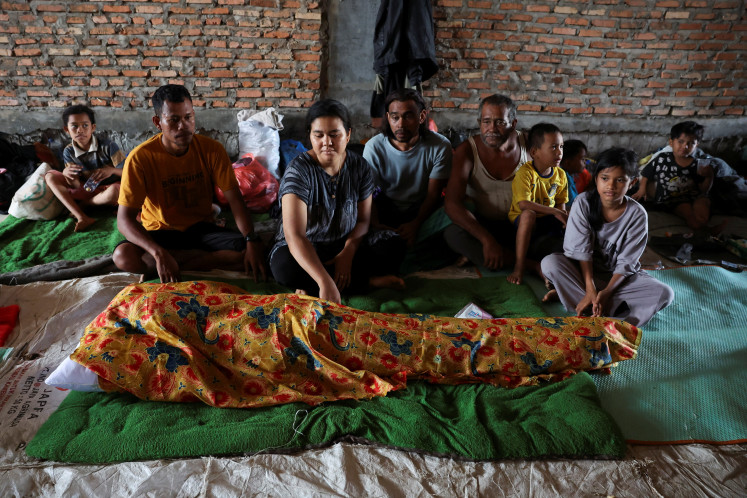Popular Reads
Top Results
Can't find what you're looking for?
View all search resultsPopular Reads
Top Results
Can't find what you're looking for?
View all search resultsLetters: Global currency
It looks like the US dollar is going to lose its status as the world's reserve currency
Change text size
Gift Premium Articles
to Anyone
It looks like the US dollar is going to lose its status as the world's reserve currency. There has been talk of the need for a new reserve currency; abandoning the dollar and instead putting in its place a basket of currencies as a world reserve. No final word has come out from the April 2 G20 Summit in this regard. Whether the dollar is abandoned in favor of a new currency reserve, the world's oldest currency, gold will continue to reign supreme.
Today, there are almost 190 different currencies being used in the world. On a daily basis, US$1.2 trillion worth of currency is traded, at the cost of billions of dollar to consumers, corporations and governments struggling to keep their currency strong and above others.
Because currency values are measured relative to other currencies, all currencies are at risk of currency fluctuations and the currency crises that often accompany radical changes in currency value. Many nations in recent history have faced these problems, currency fluctuations that have devastated their nations' economies. Key examples are Mexico, Argentina, Russia and Thailand.
As the world economy becomes more and more globalized, with corporations increasingly doing business in other nations, currency fluctuations become more and more influential in daily business. With this globalized world economy, the question arises; do we need a global currency? The idea of a single currency taking the place of all other currencies has been a persistent idea for years.
China is calling for a new global currency to replace the dominant dollar, showing a growing assertiveness on revamping the world economy. The world economic crisis shows the "inherent vulnerabilities and systemic risks in the existing international monetary system," China has long been uneasy about relying on the dollar for the bulk of its trade and to store foreign reserves.
Russia is also planning to propose the creation of a new reserve currency, to be issued by international financial institutions. IMF managing director Dominique Strauss-Kahn said that talks on a new world reserve currency to replace the US dollar were "legitimate" and could take place "in the coming month".
The issue of the world currency reserve is being robustly backed by strong forces like China and Russia. China calls for a replacement of the dollar, installed as the reserve currency after World War II, with a different standard, run by the International Monetary Fund. China and Russia are calling for the creation of a new world reserve currency amid fears that the Federal Reserve's quantitative easing policy (printing additional money) might cause hyperinflation, leading to the eventual collapse of the economy.
We have had a long history of reserve currencies which reflects an interesting fact that the position of a country as a superpower of the world (whose currency acts as a reserve currency) tends to rotate in a natural cycle of around 100 years.
History shows that certain currencies had world supremacy for more than 100 years, but were then replaced by other currencies as the world's reserve. From 1450-1530 it was Portuguese currency (80 years), from 1530 to 1640 it was Spanish (110 years), from 1640-1720 (80 years) it was Dutch, 1720-1815 French (95 years), 1815 to 1920 British (105 years) and then the US dollar has dominated the scene until 2009, for 89 years. Historically, as other currencies have dominated as a reserve currency for a cycle of nearly 100 years, it could be true for the dollar too.
Sunil K Kumbhat
Jodhpur, India










